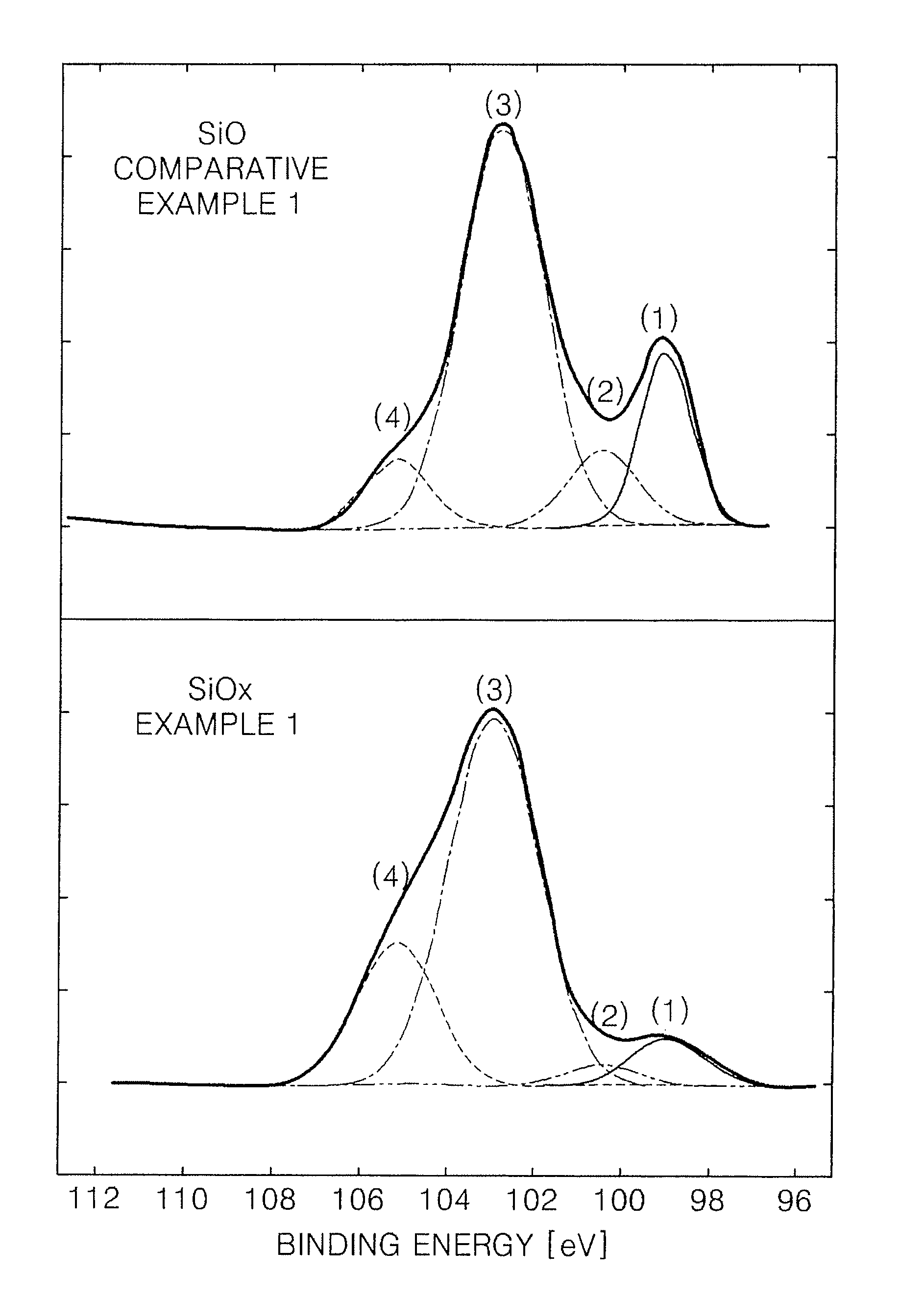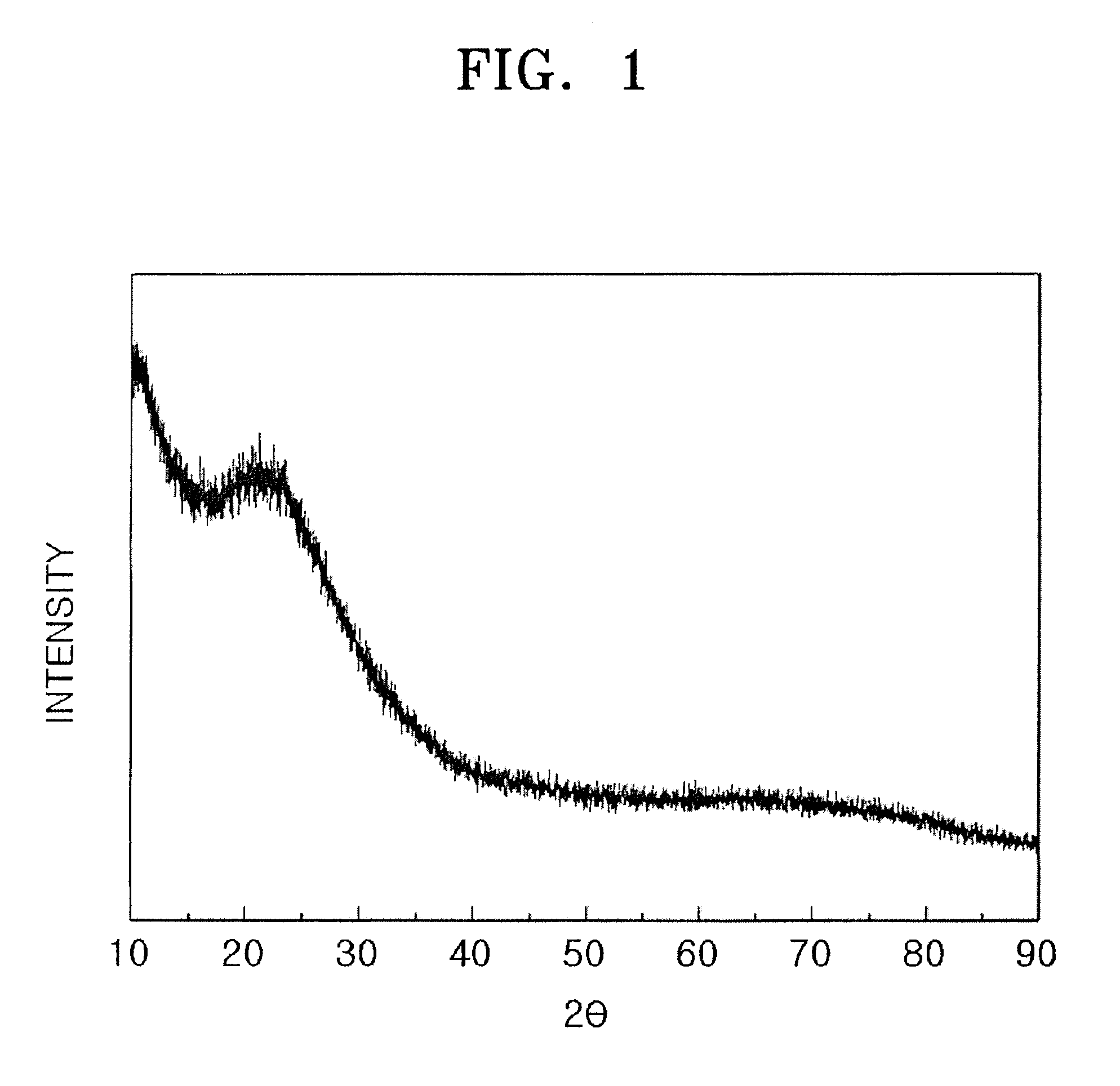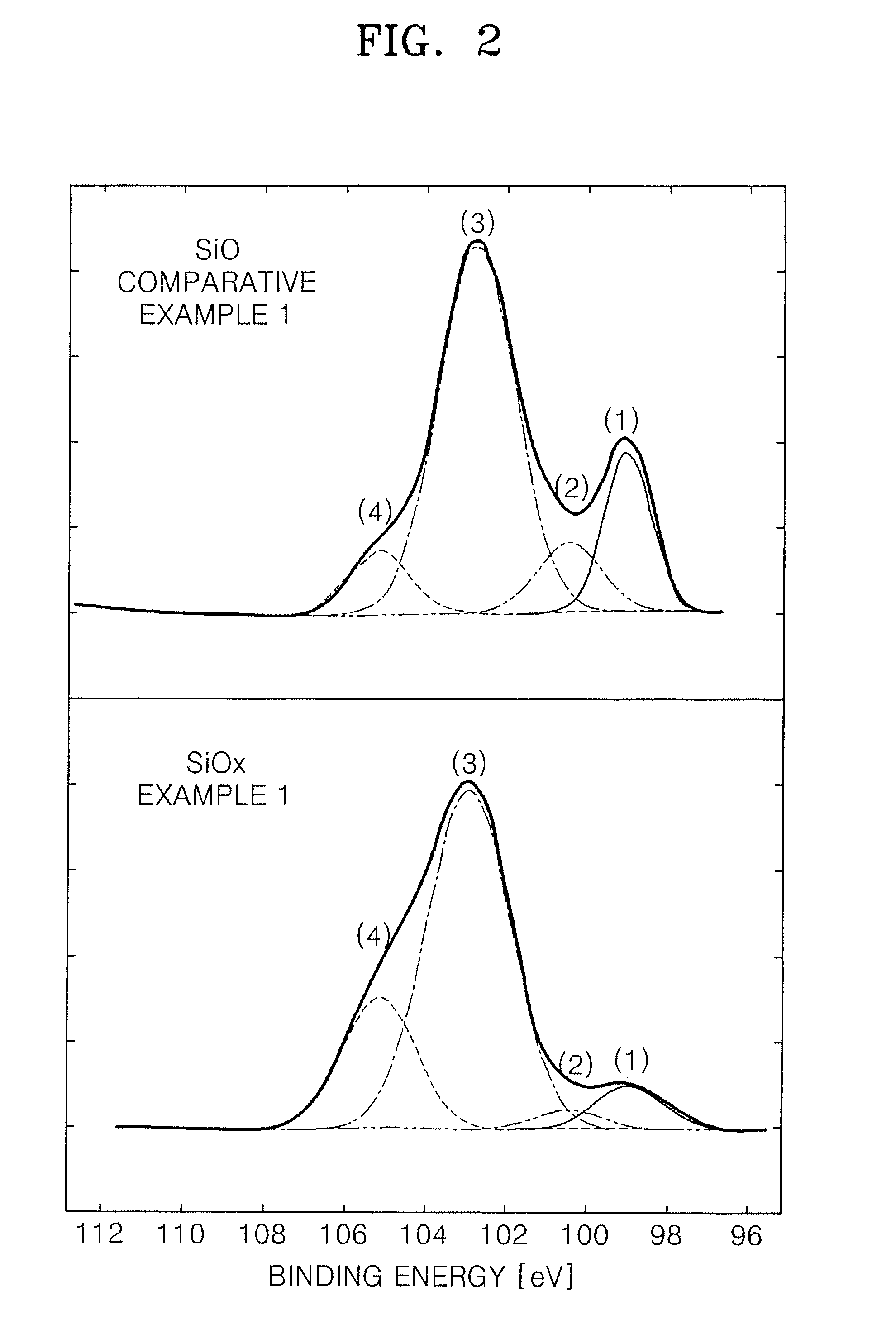Anode active material, method of preparing the same, and anode and lithium battery containing the material
a technology of anode active materials and lithium batteries, which is applied in the direction of cell components, lighting and heating apparatus, separation processes, etc., can solve the problems of shortening the internal space between the anode and the cathode, prone to explosion, and reducing the initial charge and discharge efficiency. , to achieve the effect of improving the initial charge and discharge efficiency and excellent charge and discharge characteristics
- Summary
- Abstract
- Description
- Claims
- Application Information
AI Technical Summary
Benefits of technology
Problems solved by technology
Method used
Image
Examples
example 1
[0056]1.5 g of triethoxy silane was added to 10 ml of ethanol and agitated for 30 minutes. 0.6 g of 0.5 M HCl solution was added to the resultant product and again agitated for 6 hours. After agitating, the resultant solution was allowed to stand undisturbed by external air at room temperature for 2 days until the solution was gelled.
[0057]Subsequently, the gelled solution was allowed to stand undisturbed in an oven maintained at about 80° C. for 2 days to evaporate ethanol and moisture, yielding white powder. The white powder was sintered under a flow of argon gas at a flow rate of 100 ml / min at about 900° C. for 1 hour, thereby preparing a silicon oxide (SiOx).
example 2
[0058]1 g of the silicon oxide powder prepared as in Example 1 and 0.4 g of petroleum pitch (Mitsubishi Chemical Co., Ltd., softening point: 250° C.) were added to 20 ml of THF (tetrahydrofuran), followed by agitating for 30 minutes. Subsequently, the resultant solution was continuously agitated to evaporate THF, yielding powder. The resultant powder was fired under a flow of argon gas at a flow rate of 100 ml / min at about 900° C. for 1 hour, thereby preparing a silicon oxide coated with a carbonaceous material.
example 3
[0059]A SiOx-graphite composite was prepared generally as in Example 1 except that 1.5 g of triethoxy silane was added to 10 ml of ethanol and 0.6 g of graphite powder (SFG-6 from Timcal Ltd.) was further added thereto, followed by agitating for 30 minutes.
PUM
| Property | Measurement | Unit |
|---|---|---|
| binding energy | aaaaa | aaaaa |
| binding energy | aaaaa | aaaaa |
| temperature | aaaaa | aaaaa |
Abstract
Description
Claims
Application Information
 Login to View More
Login to View More - R&D
- Intellectual Property
- Life Sciences
- Materials
- Tech Scout
- Unparalleled Data Quality
- Higher Quality Content
- 60% Fewer Hallucinations
Browse by: Latest US Patents, China's latest patents, Technical Efficacy Thesaurus, Application Domain, Technology Topic, Popular Technical Reports.
© 2025 PatSnap. All rights reserved.Legal|Privacy policy|Modern Slavery Act Transparency Statement|Sitemap|About US| Contact US: help@patsnap.com



